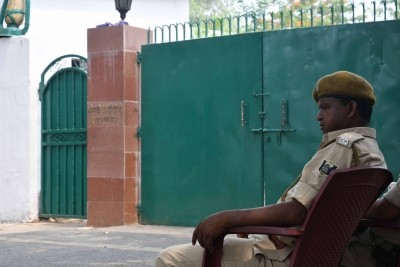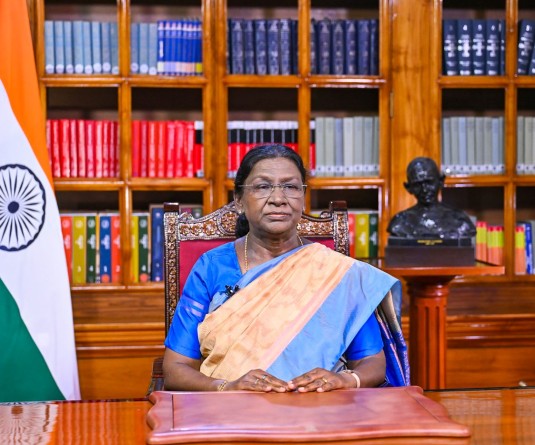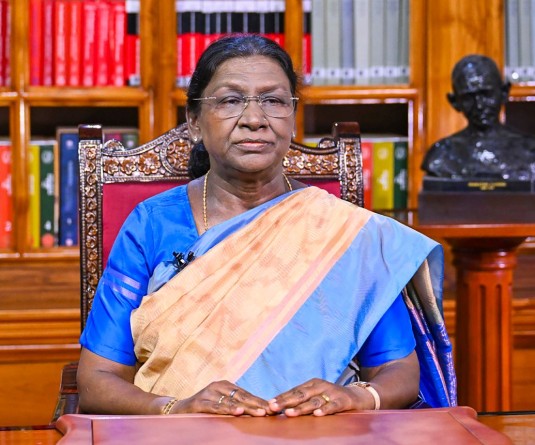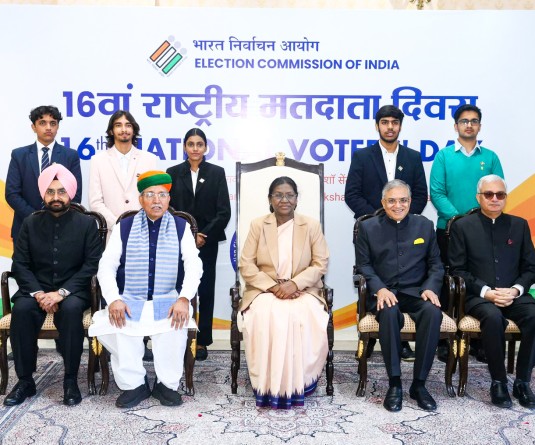Amid Bihar ex-CM’s claims, a look at other enduring ‘attachments’ to govt bungalows (File photo)

New Delhi, Nov 28 (IANS) Official orders seeking two former Chief Ministers of Bihar, Lalu Prasad and his wife Rabri Devi, to vacate premises allotted almost two decades ago based on the occupants’ position then, is not a case in isolation.
Neither is the reaction of protesting the order, claiming personal inconvenience and alleged covert political interests and intentions. The bungalow in contention, bearing the address ‘10, Circular Road’, is located in the Civil Lines area of the state capital Patna.
In the last two decades, it has evolved into a political power centre, irrespective of the fact who is ruling the state. The colonial-style building and the large lawns have served as a venue for hosting important meetings, visitors -- from dignitaries to the common people, and also for media briefings.
The refusal to vacate came despite the official allotment of an alternate accommodation to Rabri Devi as Leader of Opposition in the Bihar Legislative Council.
Her son, Tejashwi Yadav, too, had tried to retain the sprawling bungalow allotted to him as the state’s Deputy Chief Minister. He was asked to move out after Nitish Kumar’s Janata Dal (United) severed its ties with the Lalu-led Rashtriya Janata Dal (RJD). Tejashwi finally moved out, but only after a legal battle, when the Supreme Court dismissed his plea challenging a Patna High Court order asking him to vacate the bungalow. He, too, had refused to move to the accommodation provided to him as the leader of the opposition until the court ordered him to shift. The vacated bungalow was subsequently allotted to incumbent Deputy CM Samrat Choudhary.
Meanwhile, Tejashwi’s estranged elder brother, Tej Pratap Yadav, a former minister, has also been directed to vacate his residence to accommodate an incumbent state minister. Like Bihar, politicians and dignitaries elsewhere too want to keep official residences and facilities long after leaving office, mainly over a sense of prestige and power attached to such properties.
In 2018, Uttar Pradesh’s former Chief Ministers Mulayam Singh Yadav and his son Akhilesh had moved the Supreme Court seeking “appropriate time” for vacating their official residences allotted by the state government. The top court had held that they cannot retain government accommodation after demitting office.
There are examples to the contrary, too, as the incident where Atal Bihari Vajpayee's foster daughter Namita had written a letter to the government after the passing of the former Prime Minister in 2018, expressing her desire to vacate the large bungalow in central Delhi. She also asked that the special protection and other security cover be withdrawn since her family does not face a threat from any quarter.
Namita, her husband Ranjan Bhattacharya and their daughter Niharika used to live in the 7, Krishna Menon Marg residence till Vajpayee was alive. Such exceptions are rare.
In July 2024, the Union Housing and Urban Affairs Ministry issued eviction notices under the Public Premises (Eviction of Unauthorised Occupants) Act to more than 200 ex-MPs who had not vacated their allotted bungalows in Lutyens’ Delhi. They were formally asked to vacate after breaching the one-month deadline following the dissolution of the previous Lok Sabha.
In 2023, Trinamool Congress leader Mahua Moitra had approached the court when she was asked to vacate the allotted 9B, Telegraph Lane residence after being expelled as a Lok Sabha MP over an alleged cash-for-question scam. The Delhi High Court had declined to restrain eviction after allotment cancellation, underscoring limited legal protection once Parliamentary status ends.
In 2014, there were major protests in central Delhi when the eviction process was initiated against Ajit Singh after he ceased to be a Union Minister. He had refused to shift out, citing his father, Charan Singh’s, connections with the bungalow. In September that year, his supporters succeeded in blocking an attempt to start eviction proceedings at his 12, Tughlaq Road residence.
In 2009, as many as 17 ex-ministers were occupying government accommodations in the national capital. They included Jagdish Tytler, Mani Shankar Aiyar, Shankar Singh Vaghela, Renuka Chowdhury, Saleem Sherwani, Charanjit Singh Atwal, among several others. Similar high-profile cases have also involved Raj Bhavan occupants and those in residences meant for Chief Justices.
--IANS
jb/skp






